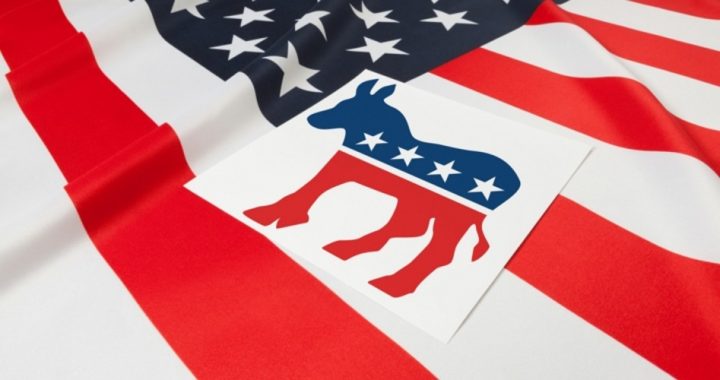
The superdelegates who play a significant role in selecting the Democratic Party’s presidential nominees are about to see their influence take a hit.
With the backing of aging socialist Senator Bernie Sanders, who at 76 is considering another run for president, the party will likely reduce superdelegates’ voting influence at its quadrennial conventions. At issue is the power these delegates have to determine the Democratic nominee, apart from the rest of the delegates selected in state caucuses and primaries.
“Superdelegates” are unpledged delegates, generally elected officials and party mugwumps such as governors and congressmen, who can vote for any candidate they wish.
Superdelegates Unhappy
The plan to diminish their power, on which party officials will vote next month, is a simple one: The party would block them from voting on the first ballot to nominate the party’s presidential candidate, which would confine their influence to the second or third ballot should the first fail to determine the nominee.
Naturally, the superdelegates are not happy, Politico reported on Wednesday. “[S]uperdelegates outside of Washington” are organizing “opposition ahead of the August vote by the full DNC in Chicago.”
“If we don’t have a vote, then what good are we?” said William Owen, a superdelegate and DNC member from Tennessee who has been contacting fellow DNC members ahead of the Chicago gathering, especially in the South. “In Chicago, this will not be rubber stamped.”
Bob Mulholland, a superdelegate and DNC member from California who has been in talks with superdelegates in the West, said, “The more DNC members realize that this so-called reform is to throw them off the floor … I think there will be a lot of complaints in Chicago.”
Democrats in the House of Representatives, Politico noted a few weeks ago, are upset as well. They don’t think the nomination will get to a second ballot, which would mean they play no role in selecting the candidate.
“I believe this decision, if they go forward, is going to do terrible damage to party harmony,” said Rep. Gerry Connolly (D-Va.), who raised his objections with Perez during Tuesday’s dinner. “It disenfranchises the elected leadership of the party. The last time we allowed that to happen was 1972, and we had the worst landslide in our history.”
“I believe that elected officials across the country — Congress and governors — I believe they provide a ballast for the party that we very much need,” Connolly added. “With all due respect to somebody who thinks we don’t need it, when we haven’t had it, Democrats have had disastrous results.”
“I think this is absolutely an insult to us,” said Rep. Bill Pascrell (D-N.J.). “We’re no better than anybody else, but we stand for election. That has to mean something, that has to stand for something. That’s a lot of baloney.”
Sanders Lost Before California Primary
Whatever their objections, however, the superdelegates are likely to lose.
Democratic Party chieftain Tom Perez and two of his predecessors, former Vermont Governor Howard Dean and Senator Tim Kaine of Virginia, are behind the plan. Kaine actually wants superdelegates eliminated, despite what happened in 2016, when their support, as Newsweek reported, virtually cemented the Clinton-Kaine ticket before the convention:
It was June 2016. Former Bernie Sanders surrogate Nina Turner was just about to go onstage to introduce the Vermont senator at a San Francisco rally she estimated drew some 30,000 people. But just before she could, she noticed a “wave of despair” overcome the crowd as everyone, almost simultaneously, looked worryingly at their phones.
Though California residents had yet to cast their ballots in the 2016 primaries, the Associated Press was reporting that Hillary Clinton had effectively won.
The AP’s forecast was the result of the Democratic National Committee’s superdelegate system.
Superdelegates were the result of changes in the party’s rules that began after the disastrous defeat of Hubert Humphrey in 1968. Humphrey was the party’s nominee, despite not participating in a single primary. The party diminished the power of its elites by changing delegate selection rules and increasing the number of primaries, which in turn ended in the convention fight between Senator Edward Kennedy and President Jimmy Carter in 1980. To prevent another one of those, which many believe led to Carter’s crushing loss to Reagan, the party adopted superdelegates. But that, critics argue, put the power to nominate back into the hands of the party establishment.
The plans to modify the role superdelegates play are the result of a Unity Reform Commission established at the party’s 2016 convention.
Superdelegates roiled the party’s grassroots voters, whose enthusiasm for Sanders threatened what everyone thought was Clinton’s easy road to the presidency.
Sanders nailed down 1,846 of the regular delegates, compared to Clinton’s 2,205. Of the 712 superdelegates, 602 went for Clinton, while just 48 supported Sanders. A total of 2,382 delegates are needed to win the nomination. The final tally was Clinton, 2,807; Sanders, 1,894.
Image: Niyazz via iStock / Getty Imaes Plus



